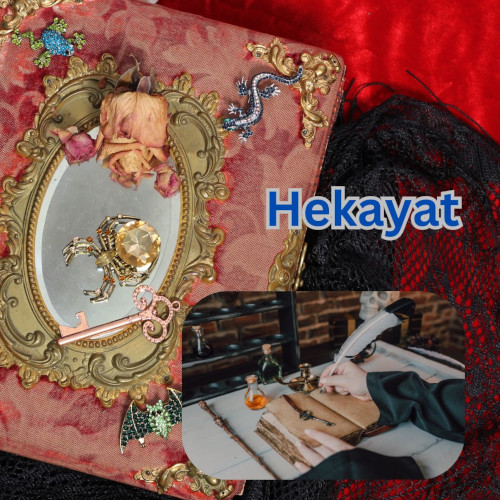Hekayat 28 from Chapter 2 of Golestan of Saadi

English Translation for Hekayat
One of the kings reached the end of his life without an heir. He decreed that the first person to enter the city gates in the morning should be crowned king and given the kingdom.
By chance, the first person to enter was a beggar who had spent his life gathering crumbs and patching rags.
The state’s officials and nobles honored the king’s will, handing over the keys to the fortresses and treasures to him. He ruled for a while until some of the state’s commanders rebelled against his authority, and kings from all sides began to contest and prepare armies for resistance.
In short, the army and the people rose up, and some parts of the land slipped from his control.
The dervish was distressed by this event until an old friend, who had been his companion in poverty, returned from a journey and saw him in such a high position.
He said: “Praise be to God, the Exalted, that your rose has emerged from the thorns and the thorn has been removed from your foot. Your high fortune has guided you, and prosperity and happiness have aided you to reach this level; indeed, with hardship comes ease.”
The blossom sometimes blooms and sometimes withers
The tree is sometimes bare and sometimes covered
He said: “Dear friend! Console me, for this is not a place for congratulations. When you saw me before, I had the worry of a piece of bread, and today I have the anxiety of the whole world.”
If we do not have the world, we are in pain
And if we have it, we are bound by its love
There is no greater turmoil than this
That it troubles the mind, whether it is or isn’t
Do not seek, if you desire wealth
Anything but contentment, which is a lasting fortune
If the rich scatter gold in their lap
Do not look at their reward
For I have heard many times from the great ones:
The patience of the poor is better than the generosity of the rich
If Bahram roasts a deer
It is not like the leg of a locust to an ant
متن حکایت
یکی را از ملوک مدّتِ عمر سپری شد، قائممقامی نداشت، وصیّت کرد که بامدادان نخستین کسی که از در شهر اندر آید تاج شاهی بر سر وی نهند و تفویضِ مملکت بدو کنند.
اتفاقاً اوّل کسی که در آمد گدایی بود همه عمر لقمه اندوخته و رُقْعه دوخته.
ارکانِ دولت و اَعیانِ حضرت وصیّتِ ملِک به جای آوردند و تسلیمِ مَفاتیحِ قِلاع و خزاین بدو کردند و مدّتی مُلک راند تا بعضی امرایِ دولتْ گردن از طاعتِ او بپیچانیدند و ملوک از هر طرف به مُنازعت خاستن گرفتند و به مقاومت لشکر آراستن.
فیالجمله، سپاه و رعیّت به هم بر آمدند و برخی طرفِ بلاد از قَبْضِ تصرُّفِ او به در رفت.
درویش از این واقعه خستهخاطر همیبود تا یکی از دوستان قدیمش که در حالتِ درویشی قَرین بود از سفری باز آمد و در چنان مرتبه دیدش.
گفت: منّت خدای را، عَزَّ وَ جَلَّ، که گُلت از خار بر آمد و خار از پای به در آمد و بختِ بلندت رهبری کرد و اقبال و سعادت یاوری، تا بدین پایه رسیدی؛ اِنَّ مَعَ الْعُسْرِ یُسْراً.
شکوفه، گاه شکفته است و گاه خوشیده
درخت، وقت برهنه است و وقت پوشیده
گفت: ای یارِ عزیز! تَعزیتم کن که جای تهنیت نیست. آنگه که تو دیدی، غمِ نانی داشتم و امروز تشویشِ جهانی.
اگر دنیا نباشد، دردمندیم
وگر باشد، به مهرش پایبندیم
حجابی زین درونآشوبتر نیست
که رنجِ خاطر است، اَر هست و گر نیست
مَطَلب، گر توانگری خواهی
جز قناعت که دولتیست هَنی
گر غنی زر به دامن افشاند
تا نظر در ثوابِ او نکنی
کز بزرگان شنیدهام بسیار:
صبرِ درویش به که بَذلِ غنی
اگر بریان کند بهرام، گوری
نه چون پایِ ملخ باشد ز موری


